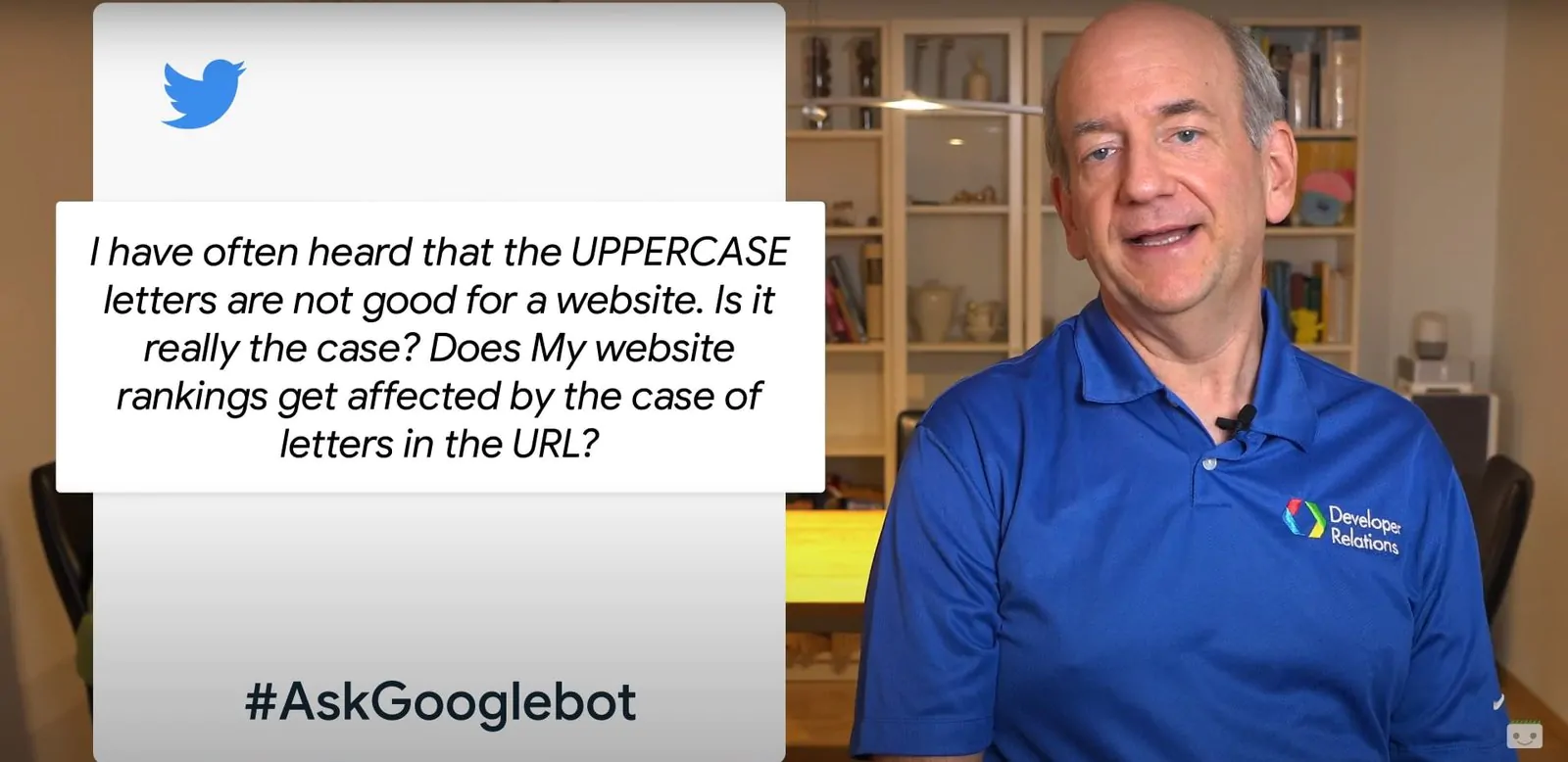When it comes to website URLs, uppercase and lowercase characters are important because URLs are Case Sensitive. Case differences can distinguish one URL from another, similar to how a URL with a trailing slash distinguishes itself from one without the slash.
Example : the URLs below are considered different
- https://suviditacademy.com/the-search-experience/
- https://suviditacademy.com/THE-SEARCH-EXPERIENCE/
Do SEO Impact if URLs Are Case Sensitive?
The cases of letters in a URL absolutely do matter to Google, Two URLs may appear identical and even go to the same content, but if one has a capital letter and the other does not, they will be recognized as different URLs.
Mueller says:
“By definition, URLs are case sensitive, and also things like slashes at the end do matter. So, technically, yes — these things matter. They make URLs different.”
When Google detects numerous versions of the same URL, it will attempt to crawl all of them in order to choose which one to display in search results. Despite the fact that everything is done automatically, it isn’t always ideal because Google may take longer to identify and index content.
Mueller says:
“If a website still shows the same content in these cases, search engines will try to figure it out on their own and usually that works out well. But it’s not always ideal.
For example, search engines will try to crawl all variations of the URL that they find. This can make it a bit slower for them to find other useful content on your website.”
When Google detects numerous distinct variants of a URL, it conducts a process known as canonicalization. It chooses which URL to keep in the SERPs and combines all of the signals from the other variants into that one. The canonical URL is the URL that ends up being displayed in search results.
Mueller says:
“Also, when search engines find multiple distinct URLs showing the same content they have to decide which of these URLs to keep. We call this canonicalization.
It doesn’t change ranking but our systems might choose a URL that you wouldn’t have chosen.”
If URLs Are Case Sensitive it can also affect robots.txt., According to Mueller;
“Another place where the exact URL plays a role is robots.txt. In the robots.txt file you can signal which parts of a website shouldn’t be crawled.
The robots.txt file also uses exact URLs, so if you have entries there which refer to one version of a URL they would not apply to other versions of that URL. It’s rare that we see this cause problems though.”
By constantly connecting to the same version of a URL, you may tell Google which version you want to see in search results. When you use the rel=”canonical” element, you’re also telling Google which version of a URL you want to see in SERPs.
“Using internal linking to link to a consistent version makes your preference clear. Adding a link rel=”canonical” element also helps to confirm that and encourages search engines to focus on that version.
So, in short, upper or lower case does matter for URLs. It’s a good practice to be consistent in how you use them, but it’s usually not that critical for a website.”
————————————————————
Join Digital Marketing Course to Learn how to Design and Manage the website including the URLs
Suvidit Academy Digital Marketing Course is best to learn the Skill of Designing and Manage the website including the URLs. This course will keeps you aligned with the digital transformation initiatives happening across the world and help you learn the skills by Doing & Practicing on daily basis.







